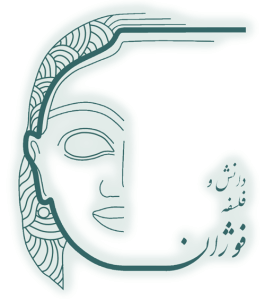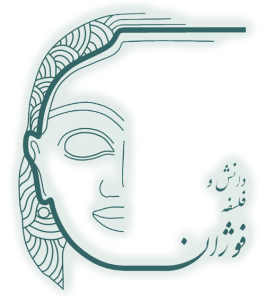On FreudвҖҷs Philosophy
An Interview with Professor David Livingstone Smith
Date Published
- November 2021
Published on
- Anthropology and Culture (in Persian) https://anthropologyandculture.com/author/shahgordi/
- Academia (in English) https://tehran.academia.edu/MasoumeShahgordi
Interviewee
- David Livingstone Smith,В В https://www.une.edu/people/david-livingstone-smith
- The University of New England
Interviewer
- Masoume Shahgordi,В https://en.foujaninstitute.com/2022/03/24/masoume-shahgordi/
- Researcher in Philosophy of Religion, Philosophy ofВ Gender and Sexuality
- Azad University, Science and Research Brand, Tehran
- Tehran University
Hello Dr Smith. It is my sheer pleasure to be your host in seeking some questions on Freud. Thank you so much for your time.
- Congratulation on your current book: “Making Monsters”. Could you please tell us shortly about it?
For the past 13 years, I have been studying the phenomenon of dehumanization: the tendency of human beings to think of other human beings as less than human. Making Monsters is my third book on this subject and describes my current views about how dehumanization works.
- Why is Freud of importance for philosophy?
In many respects, Freud was a profound thinker and was far ahead of his time. As with many intellectual innovators, his work had and continues to have many philosophical implications. I’ll just focus on one here. Freud came to decisively reject a clear view of the nature of the human mind that was associated with the French philosopher Rene Descartes but was also held by many philosophers before and after him. This view had two components. One, known as “dualism,” was that the mind is a non-physical thing that is somehow tied to a physical body. The other is that mental states and processes are all conscious. We are automatically aware of what goes on in our minds, and therefore psychological research should rely on introspection. Freud rejected both claims. He argued that the human mind is the human brainвҖ”a purely physical organ. He also argued that all mental processes are unconscious (what we call “conscious” cognitive processes are just representations of what has already occurred unconsciously). These were profoundly radical philosophical views.
- If you want to tell us some about Freud’s personality, what could it be? Optimistic, pessimistic, realistic. etc.?
Freud’s personality was complex. He was passionate, courageous, creative, and very ambitious. He enjoyed jokes and humour and believed that suffering and conflict are at the heart of the human condition.
- What are two of the most dangerous or shocking ideas of Freud? Are they still justified?
That isn’t easy to answer, because there are so many to choose from! One is that there is no clear line between mental health and mental illness. We are all bundles of conflicts and insecurities. We are all “abnormal,” but we hide this from those around us and even at times from ourselves. I think that this is a critical insight that helps us be kinder and more compassionate, both to others and to ourselves. As Freud taught us, if we accept that mental suffering is part of the human condition, we will be less inclined to resort to drugs to “cure” ourselves of these inevitable aspects of human life. The second “shocking” idea is that we can learn about ourselves by analyzing our dreams. Like many aspects of his work, Freud’s approach to plans is widely misunderstood and dismissed as silly and unscientific. Still, I consider it both brilliant and extraordinarily significant for acquiring self-knowledge. Dreams are important!
В
- Except for revealing the impacts of the unconscious mind, one of Freud’s most important legacies, what are other of Freud’s unique teachings still accurate? And which ones are today unjustifiable?
I think that there is much that is true and valuable in Freud. One understands that sexuality is complex, composed of many strands, and has a pre-history during childhood. Another is that religious belief is rooted in our awareness of our helplessness in the face of the forces of nature and human injustice. A third is his theory of how unconscious thoughts become conscious by getting linked to language. There are many more. Of course, there are also many of these views that have not stood the test of time. His theories about the origins of psychopathologyвҖ”hysteria, obsessional neurosis, and the restвҖ”are not well-grounded. His detailed claims about the psychosexual development of children, such as his theories of the Oedipus conflict and penis envy, have not aged well.
В
- Nietzsche and Schopenhauer are usually considered the most prominent influencers on Freud. However, you have criticized that and have named Franz Brentano instead in your book: “Freud’s Philosophy of the Unconscious”, published by Springer, the well-known publisher. Could you please explain it?
Brentano was quite an influential philosopher and was also Freud’s philosophy teacher when he was a student at the University of Vienna. Brentano is the person who introduced young Freud to profound philosophy. In fact, because of Brentano’s influence, Freud briefly considered doing a combined PhD in philosophy and zoology. Freud is often compared to Nietzsche, and there are certainly some striking similarities between the thinking of these two men. Freud possessed two sets of Nietzsche’s collected works (one he bought for himself, and the other was a gift from Otto Rank). Freud had a very high opinion of Nietzsche. However, as far as I am aware, there is no evidence that he ever studied Nietzsche’s work or had more than a superficial knowledge of his ideas. He seems to have read Schopenhauer more seriously, but later in life. Scholars have exaggerated Nietzsche and Schopenhauer’s intellectual influence on Freud.
- Since he was thinking after Kant’s self-asserted Copernican Revolution, what can you tell us about his epistemological system and the human understanding’s elements in his view? We know that his stuff was included “Critique of Pure Reason” in his later years in London.
Kant’s writings influenced Freud greatly. When discussing unconscious mental processes, for example, Freud often says, using a well-known Kantian phrase, that the mind is “in itself” cold, and as you point out, Freud’s copy of the Critique of Pure Reason is filled with his marginal notes. Freud did not accept the details of Kant’s system, but he was greatly influenced by Kant’s idea of the noumenal realmвҖ”the idea that we cannot know, in any direct way, the nature of things in themselves. Freud’s view of the unconscious mind is indebted to this perspective. For him, the unconscious mind is the thing-in-itself that we are.
- What could Freud teach us about the relation to the Mind-Body problem in the context of Gender and Sexual Identity? In particular, to the Body as the Embodiment of the physical self.
As I mentioned, Freud was what we now call a “physicalist.” He believed that all things are physical and that we call mental states and processes are states of and processes occurring within the physical brain. In his view, sexuality and gender are ultimately the outcomes of physical developmental processes involving our innate biological drives and our childhood environment in which these developmental processes unfold. Significantly, Freud argued that our sexual preferences and gender identity are complex, uncertain, and contradictoryвҖ”even though we may hide this from ourselves.
- Is there any sign вҖ“ explicit or implicit- of Descartes’s influence on Freud? Had he any entrance to this viewpoint? Can we trace a kind of Cartesian ethics to Freud’s philosophy? Has he spoken of something like that or offered anything to substitute for it?
No, quite the opposite. Freud was radically anti-Cartesian. We can see this in his physicalism, his rejection of the principle that the mind is transparent to itself, and his rejection of introspection to acquire psychological knowledge.
- Emphasizing unconsciousness, can Freud’s philosophy of unconsciousness be somehow accounted as the antithesis of Descartes’s? Can his philosophy question this Descartes’s optimistic viewpoint that science can provide a good life for the human being? In other words, can it claim that despite having all of the elements of a good life, unconsciousness can prevent a human being from having Cartesian ethics?
Well, Freud did believe that scientific reasoning is the only way to acquire secure knowledge of the world, including ourselves, but he did not think that science could solve all our problems. For Freud, suffering is an ineliminable feature of human life. We can use science to diminish unnecessary suffering, but we cannot banish suffering altogether. And of course, Freud thought that there is something deeply irrational at the core of human nature that can neither be eliminated nor entirely suppressed.
- If someone wants to do a comparative study on the unconscious and conscious aspects of human beings, particularly the case study of Freud and Descartes, what would you suggest?
It has been more than two decades since I was immersed in the philosophy of psychoanalysis, so there are probably lots of texts that I am not aware of. I would suggest starting with a solid overview of Freud’s intellectual career. For this purpose, I can recommend the first half of my 1999 book Approaching Psychoanalysis: An Introductory Course. One could then go on to my book Freud’s Philosophy of the Unconscious, published the same year, and is a detailed study of Freud’s philosophy of mind. Thomas Natsoulas wrote a series of articles on Freud’s theory of consciousness which are genuinely excellent. Also, some of Freud’s philosophical critics (most notably the late Adolf GrГјnbaum) have written fantastic stuff. For a somewhat different perspective, I recommend the writings of the philosopher/psychoanalyst Jonathan Lear. Beware, though. There are a lot of ignorant, inaccurate, and unsophisticated essays on FreudвҖ”authored by psychologists, philosophers, and even psychoanalysts!
- Is there anything you want to add I have not asked?
Scholarly views on Freud tend to be sharply polarized. Some uncritically love him, and othersвҖ”probably the majorityвҖ”uncritically hate him. I think Freud is well worth studying but should be neither idealized nor demonized. Even though I no longer focus my research on psychoanalytic ideas, studying Freud has permanently enriched my view of human nature and plays a significant role in the work that I do now.







